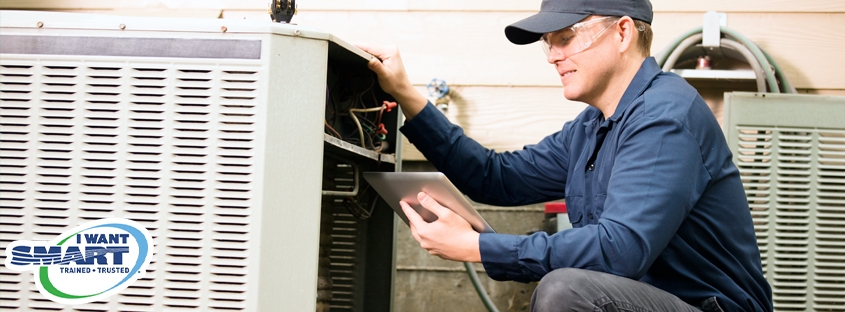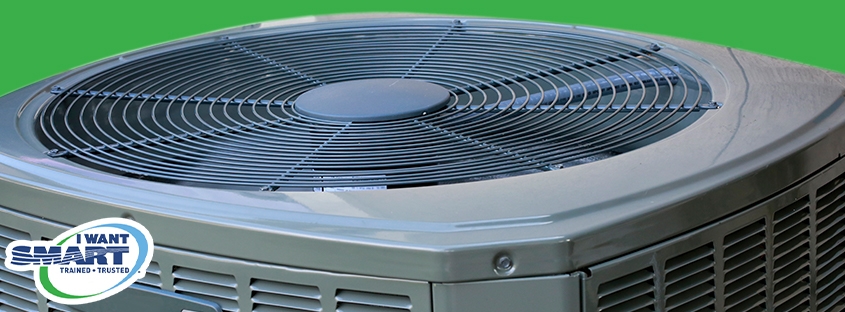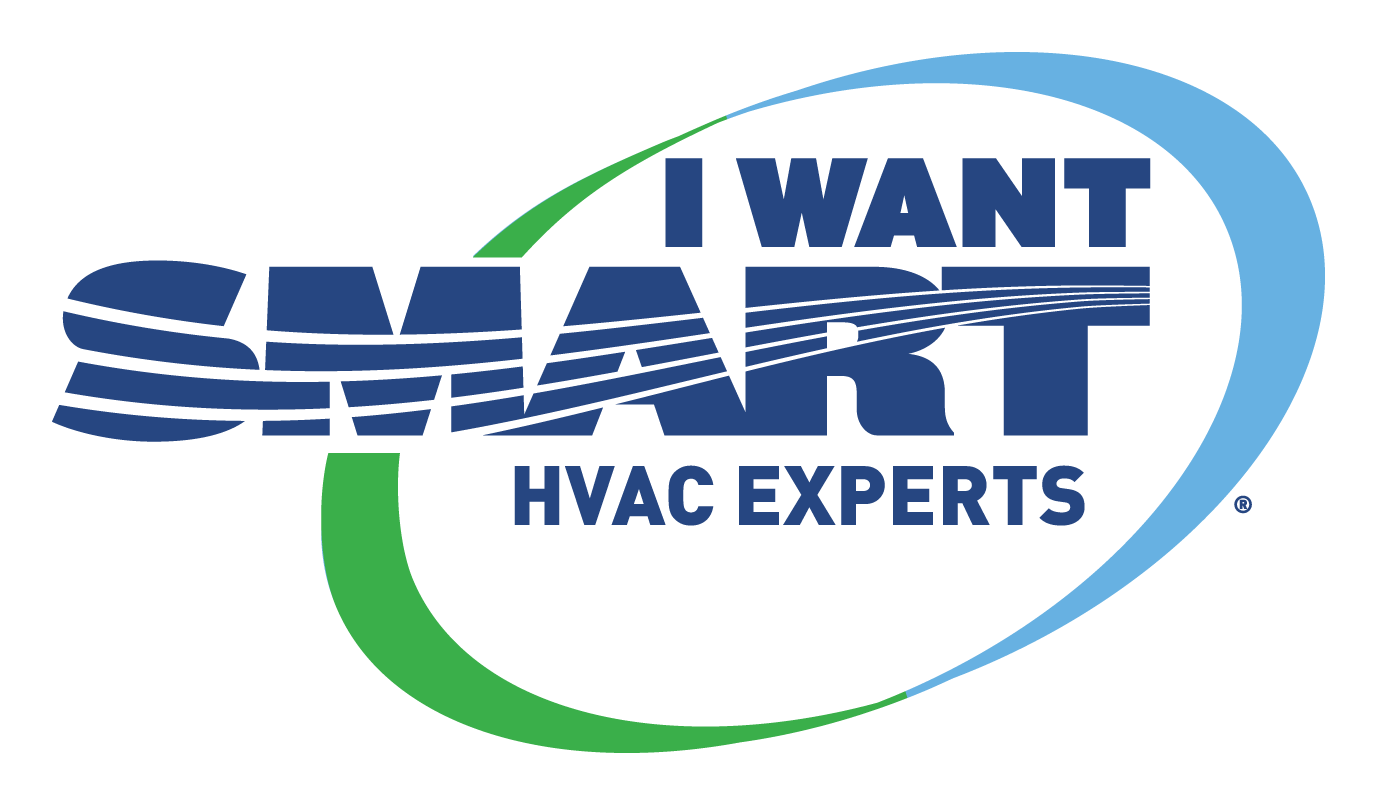Four Factors That Determine Your Air Filter’s Lifespan
/in HVAC, HVAC Spring Maintenance, Uncategorized /by Zack Dessent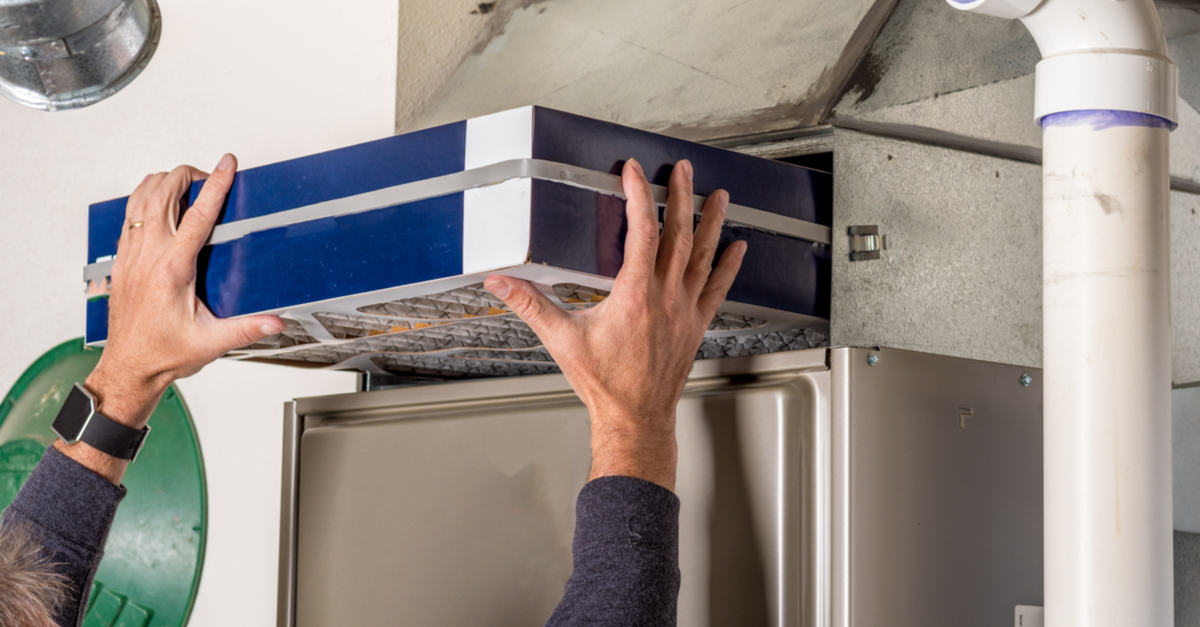 It might not be something that you think about every day, but an air filter is one of the most important parts of your HVAC system. It captures unwanted air particles such as pollutants, dirt, and dust, which could otherwise easily spread throughout your house. Over time, these bad particles will build up on the filter, which can lead to inefficient flow and costly repairs.
It might not be something that you think about every day, but an air filter is one of the most important parts of your HVAC system. It captures unwanted air particles such as pollutants, dirt, and dust, which could otherwise easily spread throughout your house. Over time, these bad particles will build up on the filter, which can lead to inefficient flow and costly repairs.
If you want a cleaner house and reduce the risk of unforeseen repair costs, you should start thinking about regular inspection and replacement of your filter. However, most people might not know when to replace their air filter, so we created this short guide to provide a general starting point.
Take note that multiple factors can determine either extend or shorten the lifespan of each filter.
Find a SMART HVAC professional near you!
#1: Periodical Changes
A general rule of thumb is to change it at the start of every new season. If you live in a part of the country that doesn’t have all four seasons you can check your filters and change them as needed every 4-6 weeks. This ensures that your air filter is working properly and doesn’t accumulate too much buildup.
#2: Filter Materials
Another thing to consider is the type of filter used in your home. The most common variant is a mechanical air filter, which uses fibers to catch air particles before they enter your ventilation system. Specifically, most people will use disposable mechanical fiberglass filters because of its low cost. However, the cheap filter only captures a small portion of unwanted particles, so it’s best to check it every few weeks to see if it needs a replacement. You can also consider using pleated or washable filters, which are more expensive but highly effective and includes a longer lifespan. Clean it once a month by spraying with water from a hose to further extend a filter’s longevity.
#3: Home Size
The size of your home also dictates your filter’s overall durability. HVAC units in smaller homes require less energy to disperse clean air in each room, which means your air filter will last longer. However, those with larger homes with more rooms and additional floors will need a better filter because of the higher amount of energy required to bring in clean air. Using a budget filter for a larger house will only add more unclean air throughout your home.
#4: Daily Habits
A final set of factors to consider are your habits at home. Those who smoke on a regular basis might find that just opening a window isn’t enough to remove the cigarette smell and its harmful effects. A portion of the toxic output can still find its way through your air filter, which can harm others living in your house and further decreases your filter’s lifespan. If you have pets, you might spend more money on replacements due to the high volume of fur that will accumulate on filters.
Get in touch with a SMART representative today.
3 Common HVAC Noises and What They Mean
/in HVAC, Uncategorized /by Zack Dessent
Sometimes, you don’t even know there’s a problem with your HVAC until it’s too late. This often stems from the fact that we just don’t know the signs and are therefore blind to indicators of trouble. One of the most obvious signs that your HVAC is malfunctioning is the uncharacteristic sounds coming from the appliance itself.
Normally, you don’t even notice the sounds your HVAC makes because it’s just not very noisy, aside from usual hums or the whooshing of air through vents. Plus, let’s face it: if we’re not confronted with the consequences head-on, we assume all is right and dandy in the world. Ignorance is bliss, right? Wrong. If you hear anything disruptive, chances are it’s time for a serious inspection by a certified contractor in your area.
Here’s a list of the most common HVAC noises and what they mean so you can resolve the problem sooner!
Contact I Want SMART for help with your HVAC system!
Clanking
Do you hear something coming from your system that sounds like the clamor of banging pots and pans? This “clanking” is abnormal and could mean parts are loose, like the blower motor fan or blades/pipes that are colliding. Clanking sounds are up there with more severe issues because of the costs associated with replacing broken or loose parts. If you hear these kinds of noises, shut off your system and call a technician immediately.
Hissing
Hissing is typical when air leaks from your system. If you hear it in your walls, your ducts could be leaking, too. This isn’t only a nuisance, but it’s also costly because the air that should be circulating throughout your home is now retreating into your walls.
First, use your best judgment to measure the volume of the hissing. Loud hissing noises from your ducts generally signal duct repair beyond the scope of even the most seasoned DIYer. Minimal hissing could mean an issue starting in your air vents. Sometimes these hissing sounds happen when air filters are loose or not the right size, thus causing an opening in the seal. The air is then bypassing the filter by going around it instead of being pulled through the filter. This, on the other hand, is a relatively simple fix that a technician could walk you through so you know what to do if it occurs again.
Rattling
If rattling noises are coming from your outdoor unit, it could mean debris (twigs, rocks, etc.) is caught inside. HVAC grates are made thin enough to block large obstructions, but occasionally things slip through. In this case, the best thing to do is turn off your system, cut the power to the unit, and remove the debris. Any visible damage to the condenser coils, compressor, or fan should be repaired by an HVAC technician. Internal rattling in your furnace or other components is treated similarly: turn it all off and call your HVAC technician, as these stoppages are harder to remove.
Search for certified I Want SMART contractors here to quickly schedule an inspection or repairs!
5 Nonnegotiable Factors When Finding An HVAC Technician
/in HVAC, Uncategorized /by Zack DessentThe verdict is in: you’re purchasing a new air conditioner or HVAC system. Now you face a slew of questions: Do you know the brand and kind of appliance you’re buying? How about the installation team? What are the costs of installation and initial setup? How do you know if you’re getting the best deal or if you’re being overcharged?
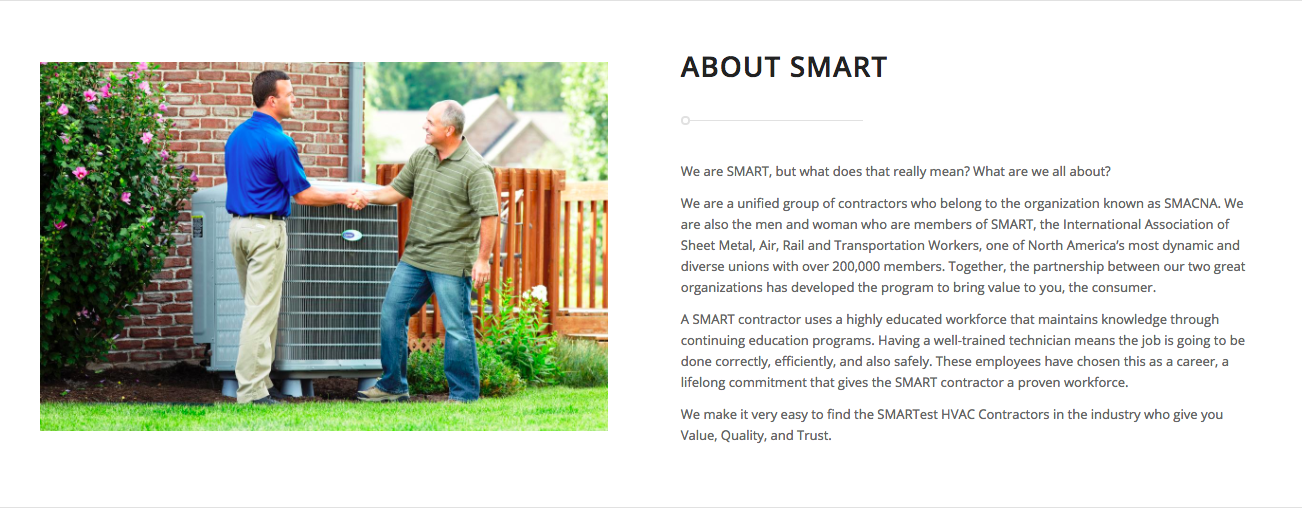
Because there’s a lot more to consider than meets the eye, we’ve arranged the most important, non-negotiable details to nail down when you’re choosing an HVAC contractor or installation company. No matter what stage of the purchase process you’re in, these tips will surely be helpful in moving you forward. If nothing else, remember this: ask as many questions as you need to be answered BEFORE your air conditioner is paid for and installed!
Need an installation quote? Find & contact one of our contractors here!
#1: Certified Technicians
There’s no excuse for shoddy work. When going about selecting an HVAC contractor, make sure they’re qualified to do the job correctly and within your timeline. Check out their website, browse online reviews (from credible sources), and read how they plan to add value to your experience. “Added value” can mean different things to different people, but the company’s commitment to quality should be clear across the board.
#2: Easily Accessible
You should be able to quickly get in touch with the contractor you select. Especially in emergencies, you don’t want to be stuck with hazardous materials. Regardless of the circumstances, make sure you can call a number that reaches an actual person or that you can leave messages on their website if this is more convenient for you.
General food for thought: these days, an updated website goes a long way. It’s a hub for information, communication, and organization. “Updated” doesn’t have to mean expensive. To us, it means implementing tools and mechanisms that make it easier for customers to reach contractors. These aspects will be evident the second you arrive at the company’s website.
#3: Reasonably Priced
Each company claims to have the best service and prices. But does it? If a deal sounds “too good to be true,” it usually is, so buyer beware. It’s great if a company shows an appreciation and understanding of its customers with specials and rebates, but when those aren’t available, the work must justify the price.
At I Want Smart, transparency is vital. We believe genuinely good labor and exceptional service shouldn’t be cheap. This is why we go to great lengths to qualify contractors: to make highly valued, pre-approved work readily available to customers through our website.
#4: Great Customer Service
When everything is going wrong, it’s easy to appreciate someone swooping in to save the day right when you need it. However, when everything is going right, it’s the details that matter in making you, the customer, feel like you’re of value to a business. If they’re keeping you in the loop about specials, events, or relevant news, it’s a good sign that they’ve invested time in thinking about what is valuable in serving you.
As we mentioned before, a responsive website is critical: it’s a member of the customer service team. You’ll notice how a company handles leads by how quickly, politely, and efficiently they follow up with you, either via phone call or email.
#5: Fair and Honest Treatment of Customers
All of our previous points work together to hammer this one home. Excellent customer service, reasonable and transparent pricing, accessibility, and qualified workers all exist to create trust between customer and contractor. If just one of these categories goes by the wayside, the rest are inevitably weak. If the company adheres to a strict code of conduct, integrity, and indeed goes the extra mile for its customers, it’ll show.

